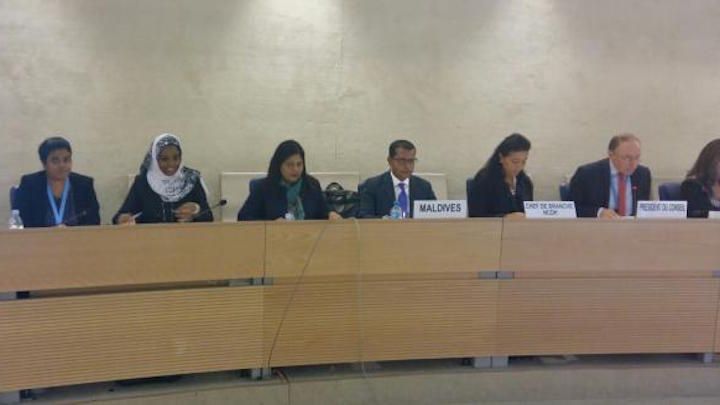Maldives accepts UPR recommendations on judicial reform
The judiciary came under fire during the Maldives’ Universal Periodic Review in May over “politicisation,” inadequate qualification of judges, and lack of conformity to international fair trial standards as well as the Supreme Court’s contempt of court cases against the Elections Commission and Human Rights Commission of Maldives.

26 Sep 2015, 09:00
The Maldives has accepted recommendations put forth at the UN Human Rights Council on reforming the judiciary to ensure impartiality and independence.
Of the 258 recommendations from UN member states at the Maldives’ Universal Period Review (UPR) in May, the government has now accepted 198 and rejected 60.
The judiciary came under fire during the UPR session on May 6 over “politicisation,” inadequate qualification of judges, and lack of conformity to international fair trial standards as well as the Supreme Court’s contempt of court cases against the Elections Commission and Human Rights Commission of Maldives.
The recommendations included reforming the Judicial Service Commission’s (JSC) process of selecting and appointing judges, reviewing the oversight body’s composition, and implementing recommendations made by the UN special rapporteur on the independence of judges and lawyers in 2013.
Become a member
Get full access to our archive and personalise your experience.
Already a member?
Discussion
No comments yet. Be the first to share your thoughts!
No comments yet. Be the first to join the conversation!
Join the Conversation
Sign in to share your thoughts under an alias and take part in the discussion. Independent journalism thrives on open, respectful debate — your voice matters.




